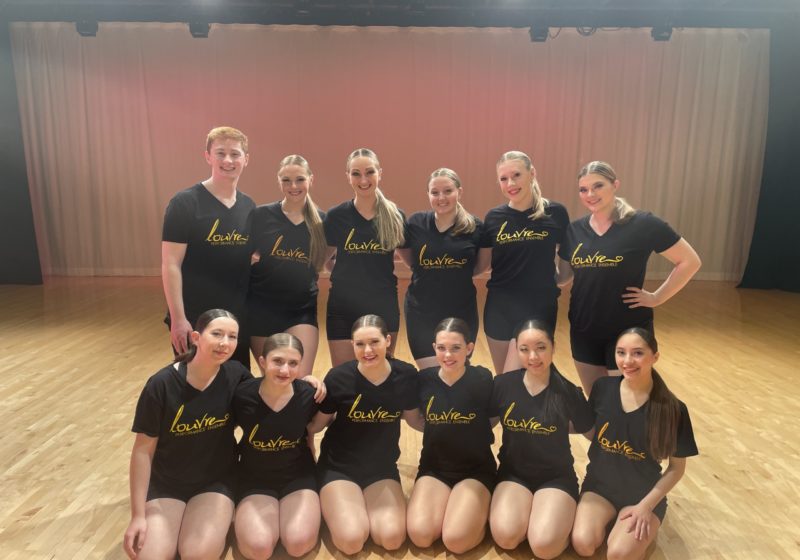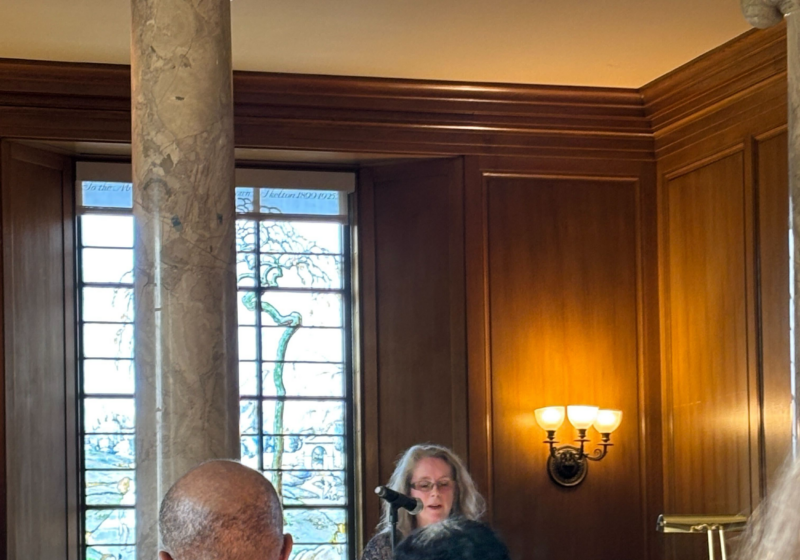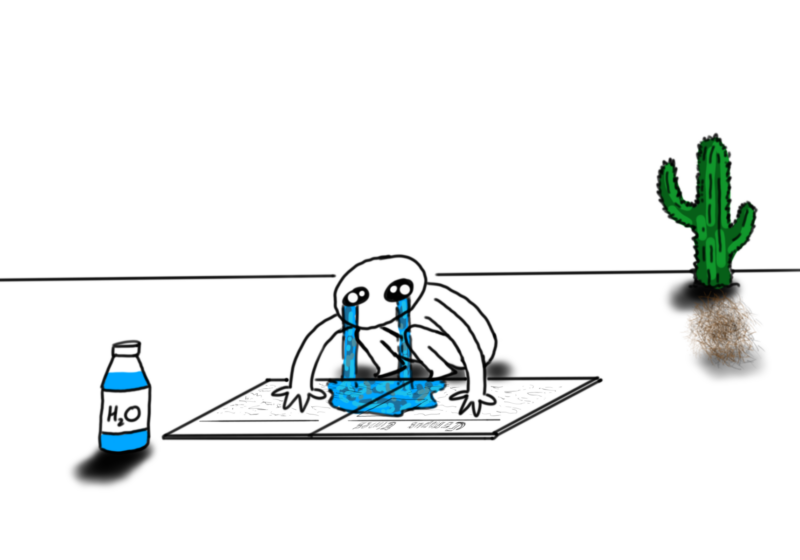Louvre Performance Ensemble, one of UR’s dance groups, recently presented their spring showcase, Lotus, this weekend. In preparation for the show, the Campus Times got to talk to some of the performers in Louvre, including freshman Tiana Grosskreuz, senior Eleanor O’Neill, and junior and President Amy Fuller, about their experiences in the group.
Responses have been lightly edited for grammar, clarity and/or style.
What is a general rehearsal like, and how are your dress rehearsals?
Grosskreuz: Every rehearsal consists of going over several dances. Each choreographer is assigned a block where they are responsible for leading the dancers in choreography, fine tuning the dance, or discussing the purpose behind a piece. At the beginning of rehearsal we all get together and warm up by stretching in a circle. During that time we get our bodies ready to dance but also catch each other up on our days and what we hope to get out of rehearsal that day.
Fuller: The first half of the semester is spent learning choreography, while the second half is used for cleaning the dances in preparation for the show. We usually film the work we have done at the end of each rehearsal so that dancers have a video to refer to. As much as our rehearsals are full of hard work, we always have the best of times and spend most of it laughing with each other and having fun creating such beautiful pieces.
O’Neill: We start promptly on the hour and every choreographer has an hour each to block their dance. Since we are completely student-run, we all have a great deal of respect for each other, and we try to demonstrate that by showing up on time and prepared to work hard. During our dress rehearsals, we run every dance in show order in costume, and we perform as if we are sitting in front of a full audience. We also invite Louvre alumni, professors of the dance department, and other community members to offer constructive feedback on how we can improve the show.
What is the creation process like for the pieces you showcase at your shows?
Grosskreuz: I really think it depends on the choreographer. Each one of us takes inspiration from our life and experiences to create a piece which really resonates with us. I think finding that purpose and meaning is the first step in the process for most of the Louvres — we all take inspiration from our hometown studios and have developed certain styles over our years of dancing which definitely helps bring out a unique quality of movement in each of the pieces.
O’Neill: In the fall, our shows have an overall theme that we use to design the individual themes of each piece. For example, if the show theme was elements of nature, our choreographers would get to choose — by seniority — themes for their own dances such as fire, rain or lightning. In the spring however, there is no overarching theme, so choreographers have much more creative freedom to construct a piece about whatever it is they feel most inspired by. One part of Louvre that has been so freeing for me is that as a choreographer, you have complete freedom to do what you’d like with your dance. That total independence makes the pride you feel after seeing the final product much more special.
What’s your favorite piece you’re doing this show?
Grosskreuz: That is a very tough question. In all honesty each dance I’m in has its own special meaning to me but if I had to choose one I would definitely say Achilles Come Down. It is so different from any dance I have ever done and it really tells a story on its own.
O’Neill: My favorite piece that I am in for this show is called “Made of Stone.” The piece tells the story of someone who knows that there is a brighter future ahead of them, but they are afraid to take the daring leap in order to achieve it. As a graduating senior, a graduate in just four short weeks, I can identify with these feelings very strongly. I have absolutely loved my time here at UR. I’ve made lifelong friends, worked with children and families who have changed how I see the world, and most importantly, I learned what kind of person I want to be in the future. I’ve also been lucky enough to dance and create next to the most amazing people I’ve ever met through Louvre, something I never thought I’d be lucky enough to find in college. But I know that I can’t stay in this safe place forever. I too need to leap forward into the next amazing phase of my life, despite how scared and sad it may make me feel.
How has being in Louvre affected you as a dancer/choreographer?
O’Neill: Like a lot of us in the group, before I joined Louvre, I was never too involved in the creative process of dance. I was choreographed on and almost never the other way around. Louvre is where I learned that I am not just a dancer but an artist.
Grosskreuz: As a dancer, I think we all use dancing as a way to express ourselves, and being in Louvre, I have found that expressing yourself as a group and understanding each other through movement is so powerful.
What is it like being in an extracurricular performance group on campus?
O’Neill: Joining an extracurricular performance group is a lot like joining a family. While you may not share blood, you share a common love for an art form, and that lends itself to form an immediate bond. On top of that, any art form requires hours of hard work every week and so very quickly, you find yourself spending more time with these people than you do any other group of people on campus. And then eventually, when you’re not with each other, you start wishing you were. On your best days as well as on your worst, you will always have a group of friends who genuinely care about you and will support you in whatever way you need. Joining Louvre was one of the first and one of the best decisions I made here at UR.
Grosskreuz: It’s such a great experience — not only do you have the chance to be part of a group that does something that you enjoy, but you also have the chance to meet others who enjoy it just as much as you do and form a great friendship through your love for the extracurricular. Regularly taking part in an extracurricular has helped make my college experience even better and has allowed me to connect to UR on another level.
For students who are thinking about joining a performance group, is there any advice you have for them?
O’Neill: If you are looking to join a performance group on campus, I would recommend that you consider what you’re looking for first. How many hours would you like to spend in this group? What style of performance are you looking for? Are you hoping to continue a passion of yours or find a new one? How big of a group are you looking for? We have so many performance groups here on campus so if you can attend an activities fair with some of these questions clear in your mind, it will really help you narrow down the choices and pick what is best for you.
Grosskreuz: Do it! If there is something you are interested in joining, my main piece of advice would be to just go for it. There are so many incredible lessons, friendships, and memories that come from being part of a performance group and I really believe that you can not lose anything by joining. Embrace any interest you have, and take advantage of all the groups on campus that could help you do that!







